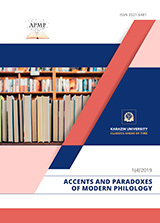Eugenio Corti: Testimony of Charity during WWII
Abstract
Eugenio Corti (Besana 1921-2014) was born in Brianza in a Catholic family, he enrolled in the Faculty of Jurisprudence of the Catholic University in Milan in 1940 and was called to arms in February of the following year. He is one of the first Italian writers who have faithfully recounted the tragic experience of Italian retreat from Russia in World War II in his diary Few returned. This diary describes the Evil in all its many shapes and forms, but at the same time it represent a journey of asceticism; in fact, this young soldier, Eugenio Corti, who left for the front as a volunteer in order to learn something more about communism, was able to experience what Good and True are even in the white hell of the Eastern front. His philosophy was shaped by his family background, military responsibility and the face of his friends: longing for and finding Good and True will be for him the only way to generate and build something positive. His testimony can be likened to the testimony about war events by great authors, like Rigoni Stern, Carlo Gnocchi, Giulio Bedeschi. But Corti’s war experience is also a path of ascension towards the discovery of his own vocation as a writer, in which all his talents as a historian, scholar and Christian wisely matched. Looking at his entire literary production, we realize that Corti, as a true historian, records the facts, evaluate the historical events and revise them using different literary genres, such as the essay, the short story, the diary and the novel; he transforms history into literature, the solid material into a piece of art. Eugenio Corti, soldier, writer, friend, husband, traveling companion, educator, witness of the charity, gave us fundamental works that alongside those of eminent writers, such as Mann, Tolstoy, Dostoevsky and Manzoni (just to name few names), exhort the readers to civil commitment and moral mission, which are necessary to nurture and improve the culture of a people.
Downloads
References
Apollonio, M. (2010). Campagna di Russia. Presenza di Eugenio Corti. Milano: Ares, pp. 95-98.
Aristotele. Etica Nicomachea.
Corti, E. (2008). Don Carlo Gnocchi. Il Medioevo e altri racconti. Milano: Ares, 189 p.
Corti, E. (2013). I più non ritornano. Milano: Ares, 334 p.
Corti, E. (2015). «Io ritornerò». Lettere dalla Russia 1942-1943. Milano: Ares, 245 p.
Giglia, E. (2004). Ungaretti: ragioni di una poesia. Il canto strozzato. Poesia italiana del Novecento. Novara: Interlinea, pp. 321-336.
Livi, F. (2012). La saison en Enfer d’Eu-genio Corti: «La plupart ne reviendront pas» (1947). Italica: l'Italie littéraire de Dante à Eugenio Corti. Parigi: L'Age d'Homme, pp.751-756.
Livi, F. (2017). Eugenio Corti e la Storia. Al cuore della realtà. Eugenio Corti scultore delle parole. Novara: Interlinea, pp. 19-39.
Mabire, L. (2010) Un’armata si perdeva così nella notte. Presenza di Eugenio Corti, Milano: Ares, pp. 103-107.
Negri, L. Una significativa testimonianza di fede e di cultura. Prolusione tenuta durante la cerimonia di conferimento del Premio Internazionale Eugenio Corti 2019, 4 febbraio 2019, Centro Culturale di Milano. Retrieved from https://www.centroculturaledimilano.it/premio-internazionale-eugenio-corti-2019/
Scaglione, P. (2017). Eugenio Corti inedito: spunti d’archivio per una biografia. Al cuore della realtà. Eugenio Corti scultore di parole. Novara: Interlinea, pp. 41-60.
Scaglione, P. (2002). Parole scolpite. I giorni e l’opera di Eugenio Corti. Milano: Ares, 279 p.
Rivali, A. Giorni e opere di un matrimonio, in «Studi cattolici», 641/42 (luglio-agosto 2014), pp. 494-499.
Rondena, E. (2017). L’originalità del diario «I più non ritornano» nella letteratura di guerra. Al cuore della realtà. Eugenio Corti scultore delle parole. Novara: Interlinea pp. 115-136.




